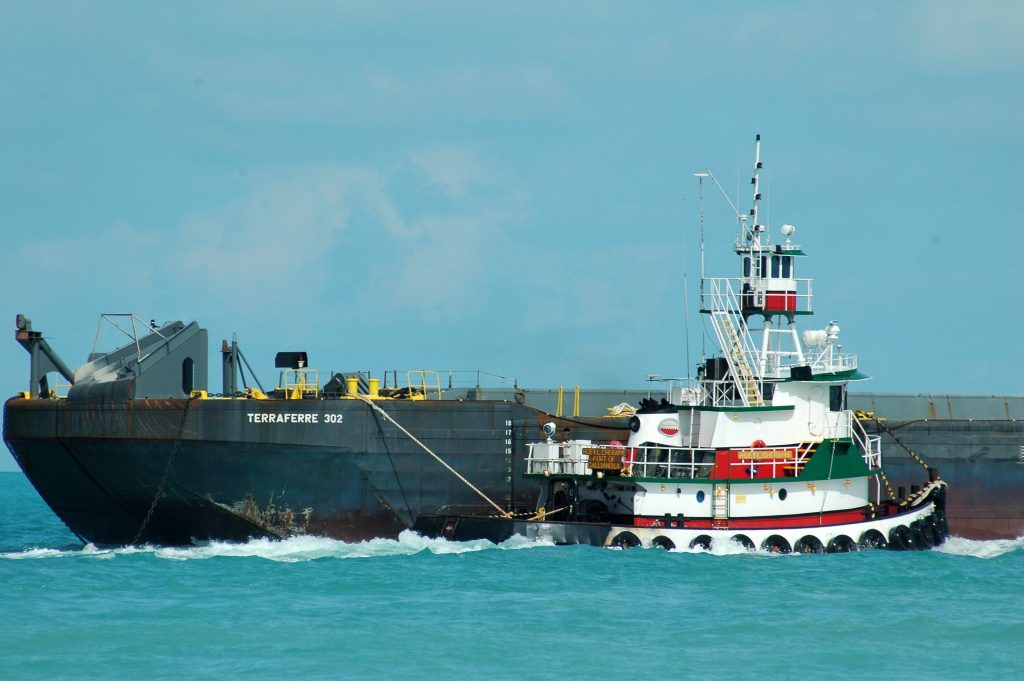 To succeed in a lawsuit, it is not enough that your claim has merit. Rather, you must also comply with sometimes complex procedural requirements. These requirements include strict time limits in which you must file your claim. Otherwise, even if your claim has merit, it could be dismissed because of a peremptory exception of prescription. The following lawsuit involving bad faith insurance claims shows just how critical timely filing and proper crafting of a lawsuit are to preserve all of your claims.
To succeed in a lawsuit, it is not enough that your claim has merit. Rather, you must also comply with sometimes complex procedural requirements. These requirements include strict time limits in which you must file your claim. Otherwise, even if your claim has merit, it could be dismissed because of a peremptory exception of prescription. The following lawsuit involving bad faith insurance claims shows just how critical timely filing and proper crafting of a lawsuit are to preserve all of your claims.
While Harold Fils was driving a vehicle owned by Bilfinger Salmis, his employer, he was hit by a vehicle driven by an uninsured motorist. Bilfinger’s uninsured motorist insurer was Starr Indemnity. Fils submitted a claim to Starr for his injuries and other damages. Starr paid Fils $45,000 but refused to make any additional payments due to Fils’s purported pre-existing conditions.
Fils filed a lawsuit against Starr for additional payments. Fils claimed his medical expenses alone were over $45,000. He later amended his petition to claim Starr had acted in bad faith and sought penalties and attorney fees under La. R.S. 22:1973 and 22:1892. Starr filed a peremptory exception of prescription, claiming Fils’ bad faith claim was barred as it had been filed more than one year after he filed his lawsuit against them. The trial court ruled in favor of Starr and dismissed Fils’ bad faith claim. Fils appealed.
 Louisiana Personal Injury Lawyer Blog
Louisiana Personal Injury Lawyer Blog


 A homeowner’s insurance policy can help protect you if someone is injured on your property. However, like any insurance policy, a homeowner’s insurance policy can include many exclusions that limit what type of injuries your insurance policy will cover. If such an exclusion applies to your claim, your insurance company will likely try to claim it is not responsible for the pay the damages claimed. This can result in complex litigation, including complicated procedural devices such as the peremptory exception of no right of action at issue in the following case.
A homeowner’s insurance policy can help protect you if someone is injured on your property. However, like any insurance policy, a homeowner’s insurance policy can include many exclusions that limit what type of injuries your insurance policy will cover. If such an exclusion applies to your claim, your insurance company will likely try to claim it is not responsible for the pay the damages claimed. This can result in complex litigation, including complicated procedural devices such as the peremptory exception of no right of action at issue in the following case. The legal landscape can be full of unexpected twists and turns, and one such situation arose in this perplexing lawsuit. Erika Mann’s post-Hurricane Katrina home-raising project became a legal battle when she filed a lawsuit against Tim Clark Construction LLC and their insurer, Evanston Insurance Company. As the trial court issued a judgment that seemingly favored both parties, questions arose about the validity and coherence of the ruling. Join us as we delve into the intricacies of this case and explore how an inconsistent judgment navigated its way through the appeals process.
The legal landscape can be full of unexpected twists and turns, and one such situation arose in this perplexing lawsuit. Erika Mann’s post-Hurricane Katrina home-raising project became a legal battle when she filed a lawsuit against Tim Clark Construction LLC and their insurer, Evanston Insurance Company. As the trial court issued a judgment that seemingly favored both parties, questions arose about the validity and coherence of the ruling. Join us as we delve into the intricacies of this case and explore how an inconsistent judgment navigated its way through the appeals process. Car accidents can be distressing, and the aftermath becomes even more complex when multiple vehicles are involved. Such was the case with Lisa Watson, Shelley Tannehill, and Melissa Smith after a three-car collision on Interstate-10 in New Orleans. Determining liability in these situations is no easy task, as demonstrated in this legal battle revolving around whether summary judgment was warranted for the dismissal of claims against the driver of the middle car. Let’s delve into the intricacies of this case and highlight the significance of seeking professional legal advice when facing similar situations.
Car accidents can be distressing, and the aftermath becomes even more complex when multiple vehicles are involved. Such was the case with Lisa Watson, Shelley Tannehill, and Melissa Smith after a three-car collision on Interstate-10 in New Orleans. Determining liability in these situations is no easy task, as demonstrated in this legal battle revolving around whether summary judgment was warranted for the dismissal of claims against the driver of the middle car. Let’s delve into the intricacies of this case and highlight the significance of seeking professional legal advice when facing similar situations. Can a trial court’s approval of a settlement agreement in a property contamination lawsuit be upheld without determining remediation requirements and the deposit of funds into the court registry? This question lies at the heart of the following case, which features an appeal of the trial court’s judgment approving a settlement agreement regarding property contamination caused by historic oil and gas operations. The appeal raises issues of statutory interpretation and whether the trial court erred in its application of the law. The resolution of this question has significant implications for the approval process of settlement agreements in similar cases governed by
Can a trial court’s approval of a settlement agreement in a property contamination lawsuit be upheld without determining remediation requirements and the deposit of funds into the court registry? This question lies at the heart of the following case, which features an appeal of the trial court’s judgment approving a settlement agreement regarding property contamination caused by historic oil and gas operations. The appeal raises issues of statutory interpretation and whether the trial court erred in its application of the law. The resolution of this question has significant implications for the approval process of settlement agreements in similar cases governed by  The language used in insurance policies can hold immense significance when determining the resulting coverage and payouts. In a compelling case involving three tug boats, the M/V Miss Dorothy, the M/V Angela Rae, and the M/V Freedom, an unfortunate collision prompted a dispute over insurance claims. As insurers of the Miss Dorothy sought compensation from the owners of the Angela Rae, the crux of the matter revolved around the interpretation of key terms within the insurance policies. The court’s analysis focused on the definition of “tow” and the parties’ intent, underscoring the critical role that precise language plays in insurance contracts. This case serves as a powerful reminder to both drafters and signers of insurance policies that every word holds weight and can shape the outcome of a claim.
The language used in insurance policies can hold immense significance when determining the resulting coverage and payouts. In a compelling case involving three tug boats, the M/V Miss Dorothy, the M/V Angela Rae, and the M/V Freedom, an unfortunate collision prompted a dispute over insurance claims. As insurers of the Miss Dorothy sought compensation from the owners of the Angela Rae, the crux of the matter revolved around the interpretation of key terms within the insurance policies. The court’s analysis focused on the definition of “tow” and the parties’ intent, underscoring the critical role that precise language plays in insurance contracts. This case serves as a powerful reminder to both drafters and signers of insurance policies that every word holds weight and can shape the outcome of a claim. Borrowing a car from family or friends is a common occurrence. While you might think your car insurance protects you in the unfortunate event you are involved in a car accident while driving the borrowed car, it is essential to be aware of exclusions that might apply to your insurance coverage. This case involves a policy exclusion that applied to property damage caused to the borrowed car.
Borrowing a car from family or friends is a common occurrence. While you might think your car insurance protects you in the unfortunate event you are involved in a car accident while driving the borrowed car, it is essential to be aware of exclusions that might apply to your insurance coverage. This case involves a policy exclusion that applied to property damage caused to the borrowed car.  Receiving compensation from the at-fault driver’s insurance policy after a car accident can bring relief. However, it is essential to be aware of the potential complications if the awarded amount exceeds the other driver’s insurance policy limits. This case serves as an example of what can happen in such situations and highlights the importance of understanding the legal implications.
Receiving compensation from the at-fault driver’s insurance policy after a car accident can bring relief. However, it is essential to be aware of the potential complications if the awarded amount exceeds the other driver’s insurance policy limits. This case serves as an example of what can happen in such situations and highlights the importance of understanding the legal implications. Dealing with the elements is an inherent part of construction work. Yet, sometimes the elements get unexpectedly unruly. This is where insurance is supposed to step in and compensate for delays or damage. In the following case, however, overlapping insurance policies made determining who should step up difficult.
Dealing with the elements is an inherent part of construction work. Yet, sometimes the elements get unexpectedly unruly. This is where insurance is supposed to step in and compensate for delays or damage. In the following case, however, overlapping insurance policies made determining who should step up difficult.  In the aftermath of a tragic situation, such as the death of a child, the last thing you might want to consider are insurance policies and legal requirements. However, it is essential to understand how courts determine whether an individual was covered by a specific insurance policy so that you know who might be liable for your losses. This is especially important when the accident involves a vehicle used both commercially and personally.
In the aftermath of a tragic situation, such as the death of a child, the last thing you might want to consider are insurance policies and legal requirements. However, it is essential to understand how courts determine whether an individual was covered by a specific insurance policy so that you know who might be liable for your losses. This is especially important when the accident involves a vehicle used both commercially and personally.